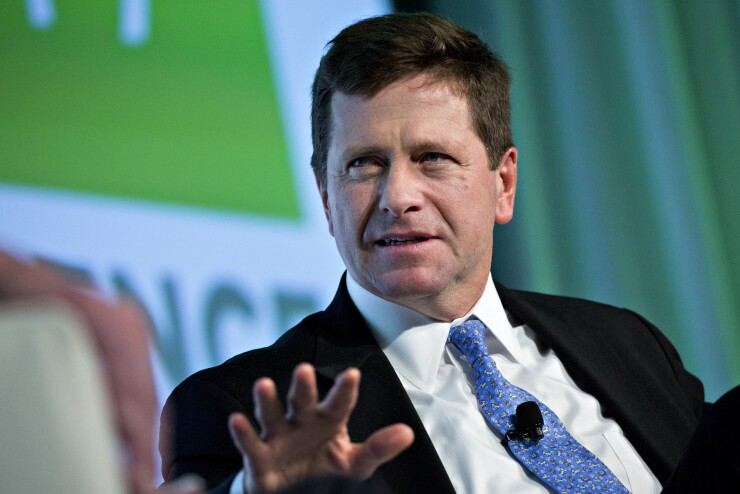A federal court decision may have vacated the fiduciary rule, but firms and advisors aren't rushing to overhaul compliance policies ― at least not yet.
Wirehouses, regional and independent firms
Given the still unsettled nature of the issue ― the Labor Department may appeal the ruling to the Supreme Court and the
"I think they have to stay the course at least until May because many firms have adopted policies and procedures that are consistent with the rules and exemptions, and to some degree have made statements to clients about what they are planning on doing," says Bruce Ashton, a partner at law firm Drinker Biddle & Reath.
Changing up compliance plans runs several risks, not least that a firm could be found out of compliance should the fiduciary rule ultimately survive.
The Labor Department has 45 days

Some experts are divided on whether the fiduciary rule is even vacated outside of the court's jurisdiction.
Andy Sieg, head of Merrill Lynch Wealth Management, informed advisors in a memo last week that the wirehouse has no intention of changing its current approach, which
"As you know, we have long advocated for a 'harmonized' best interest standard, with clear and consistent rules, when advisors provide personalized investment advice to retail clients in any account. We have also encouraged close coordination among regulators, and we’re confident that our approach will be consistent with the measures they will ultimately adopt," Sieg wrote.
Merrill Lynch has more than 14,500 advisors overseeing approximately $2.3 trillion in client assets as of the end of the fourth quarter,

Of course, Merrill Lynch wasn't alone in making operational adjustments in order to comply with the fiduciary rule.
"There were so many people that were convinced it was going to pass that people were making changes already, just like we made changes," says Mike Piershale, president of Piershale Financial Group, an RIA with about $250 million in AUM.
His Crystal Lake, Illinois-based firm changed its investment management agreement to have more disclosure language about the IRA rollover process from 401(k)s, even though as an RIA, his firm is already a fiduciary.
"I think it's just created a heightened sensitivity in the industry, where everybody going forward whether it ever [survives] or not is going to be very paranoid that if they don't do a certain amount of disclosure going forward, it's going to come back," Piershale says.
On Monday, SEC Chairman Jay Clayton reiterated his commitment that the commission will create its own higher standard of client care ― though he acknowledged it’s an area where emotions run high on both sides.
-
Some are calling for the CFP Board to get tough on conflicts and compensation as it finishes revisions to its standards of conduct.
March 9 -
"I think it's something that the market needs. I think it's something that regulators need," Jay Clayton says.
February 23 -
Massachusetts regulators accuse the firm of running afoul of the impartial conduct standard by holding sales contests.
February 15
"What we have been trying to do is to bring some real analysis in this space to understand what is the best interest of the ordinary investor," Clayton told attendees at SIFMA's Compliance and Legal Society seminar in Orlando, Florida. SIFMA was one of the plaintiffs that sued the Labor Department and won the appeals court case that vacated the fiduciary rule.
The case will not affect or deter the SEC's work, Clayton said. He emphasized that there are too many overlapping regulatory standards when it comes to the client-advisor relationship, and that he would like to see the SEC's work become the focal point for harmonization. A new rule should be forthcoming soon.
"I have convinced myself we have to do something in this area," Clayton said.
― With additional reporting from Tobias Salinger.





